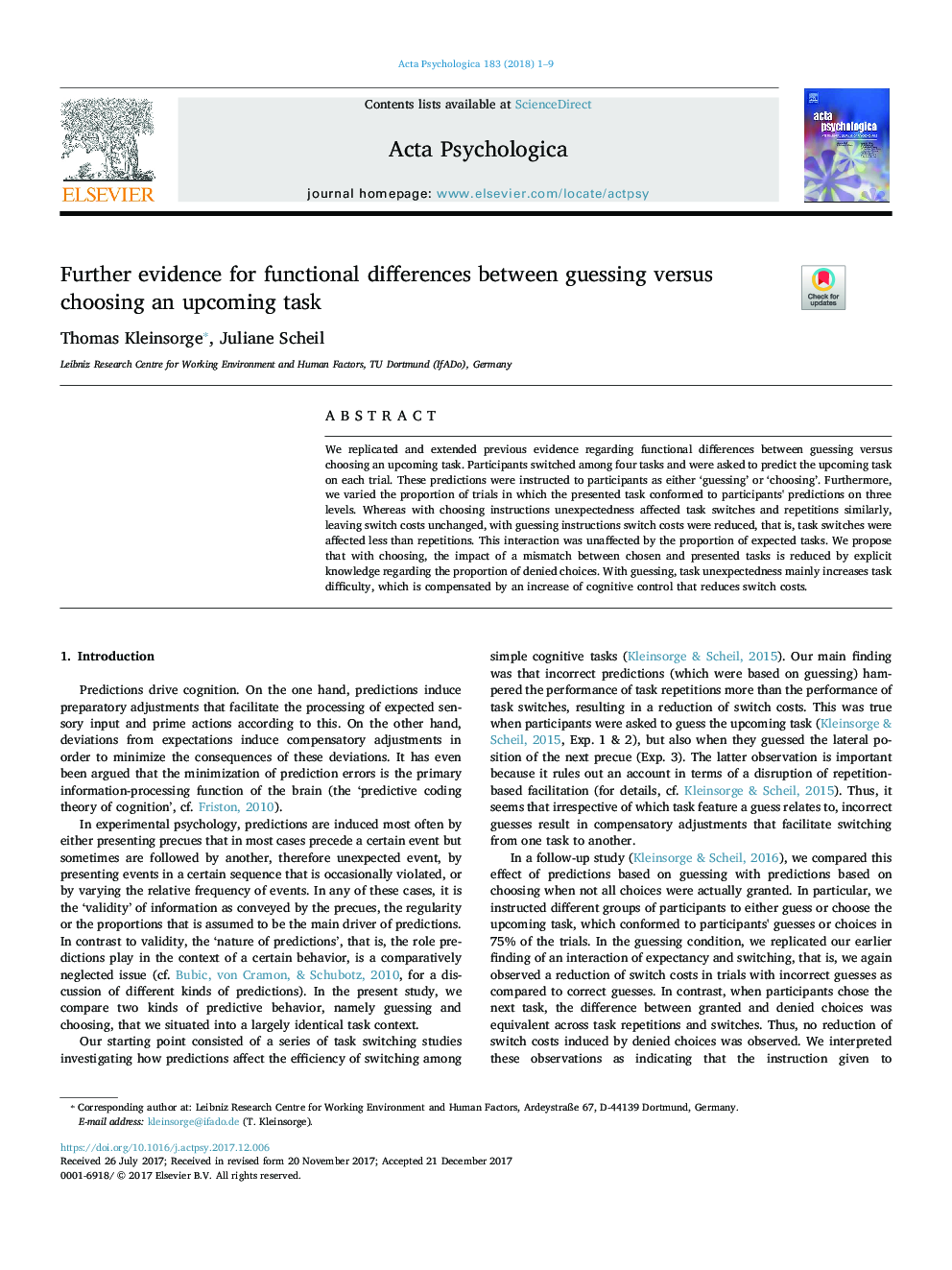| Article ID | Journal | Published Year | Pages | File Type |
|---|---|---|---|---|
| 7276813 | Acta Psychologica | 2018 | 9 Pages |
Abstract
We replicated and extended previous evidence regarding functional differences between guessing versus choosing an upcoming task. Participants switched among four tasks and were asked to predict the upcoming task on each trial. These predictions were instructed to participants as either 'guessing' or 'choosing'. Furthermore, we varied the proportion of trials in which the presented task conformed to participants' predictions on three levels. Whereas with choosing instructions unexpectedness affected task switches and repetitions similarly, leaving switch costs unchanged, with guessing instructions switch costs were reduced, that is, task switches were affected less than repetitions. This interaction was unaffected by the proportion of expected tasks. We propose that with choosing, the impact of a mismatch between chosen and presented tasks is reduced by explicit knowledge regarding the proportion of denied choices. With guessing, task unexpectedness mainly increases task difficulty, which is compensated by an increase of cognitive control that reduces switch costs.
Related Topics
Life Sciences
Neuroscience
Cognitive Neuroscience
Authors
Thomas Kleinsorge, Juliane Scheil,
